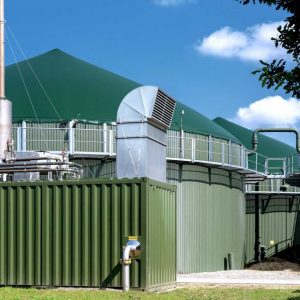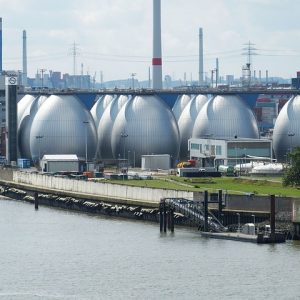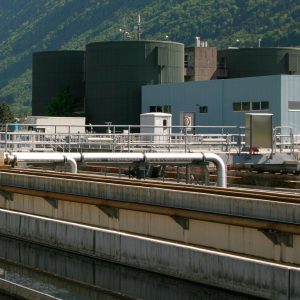From comprehensive turnkey plants to repowering
Thanks to our extensive know-how, we implement future-oriented, economically viable projects. Our team includes experts in all areas: from planning & project management to assembly and monitoring technology.
Agricultural
Agricultural biogas plants are mainly operated with input substances from energy crops such as maize and liquid manure.
If necessary, these substrates are crushed and then introduced into the biogas plant via an input system. The substrates are fermented in digester tanks and the resulting biogas is burned in combined heat and power (CHP) plants in order to generate both electricity and heat.

Industrial
Industrial biogas plants mainly use residues or by-products from production plants as substrates, such as waste water, sludge, pulps or fats.
The clear advantage of a biogas plant using residues from production: excess production waste becomes a cost-effective raw material, while simultaneously solving the problem of waste disposal. In this way, companies can save costs and expand their energy independence.

Waste
Waste plants primarily use municipal waste as their raw material for energy generation. However, since this waste is often not composed solely of biomass, the requirements for a waste fermentation plant are different from e.g. those of an agricultural biogas plant.
Special technology ensures that the raw materials are pretreated before they are fed into the biogas plant, so that only the valuable substrate gets into the fermentation chamber and can be efficiently processed.

